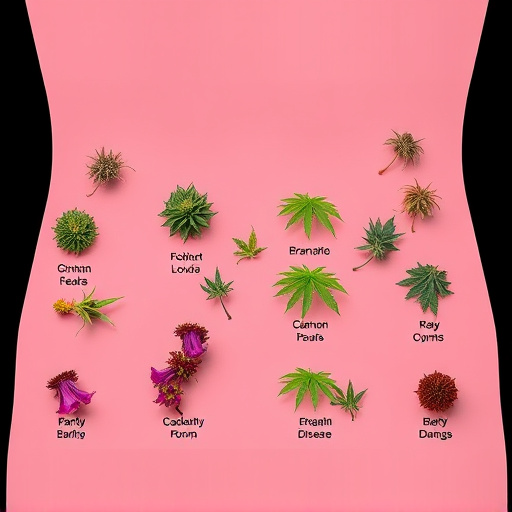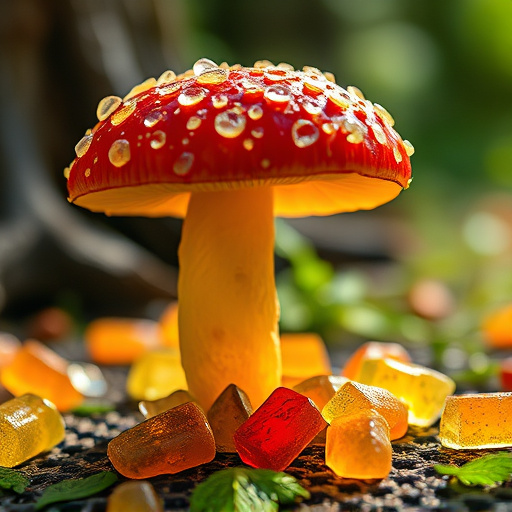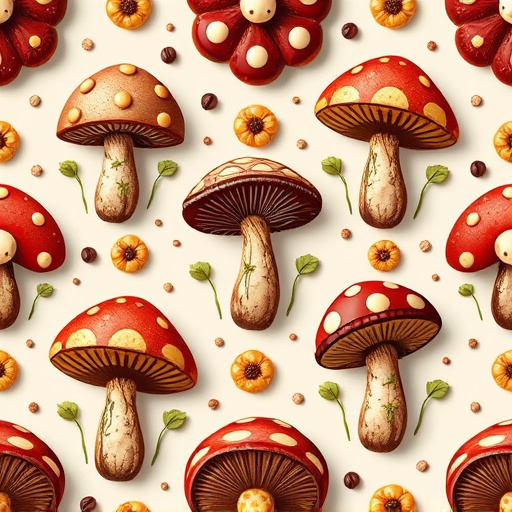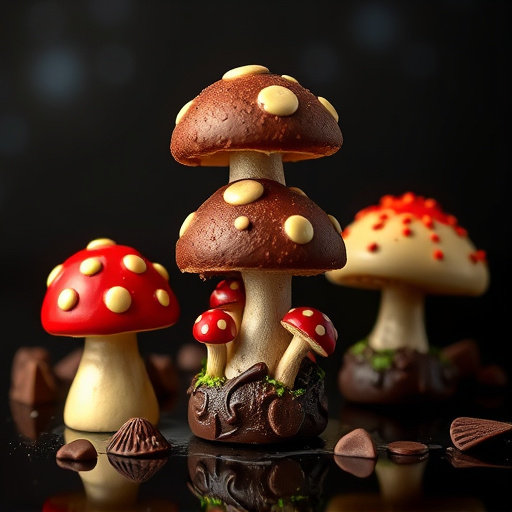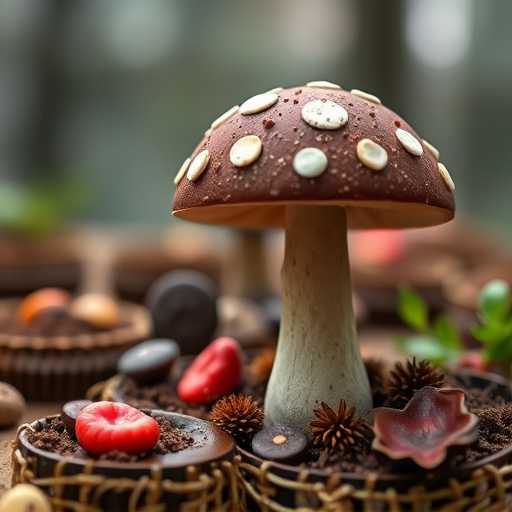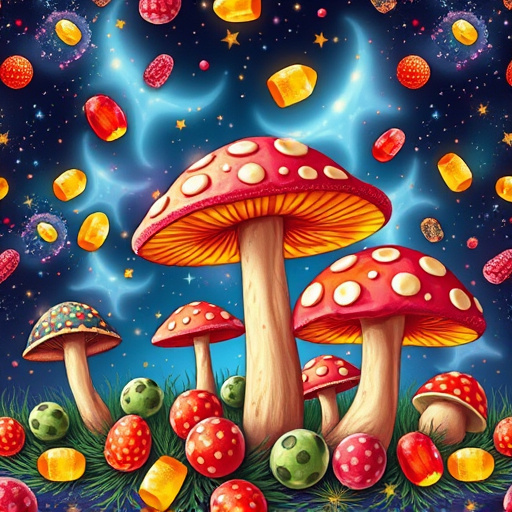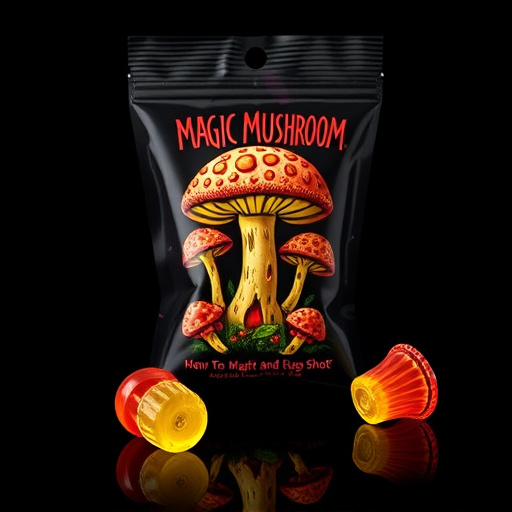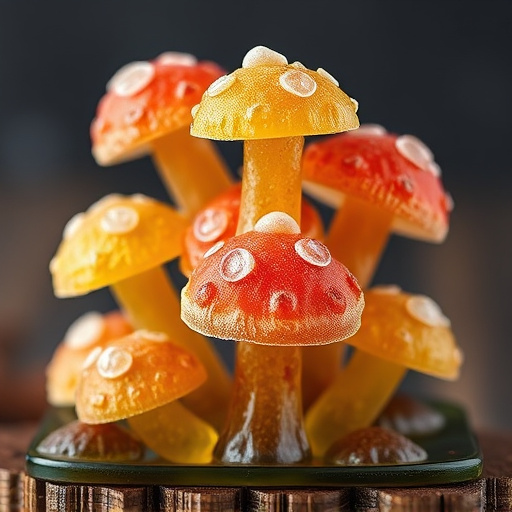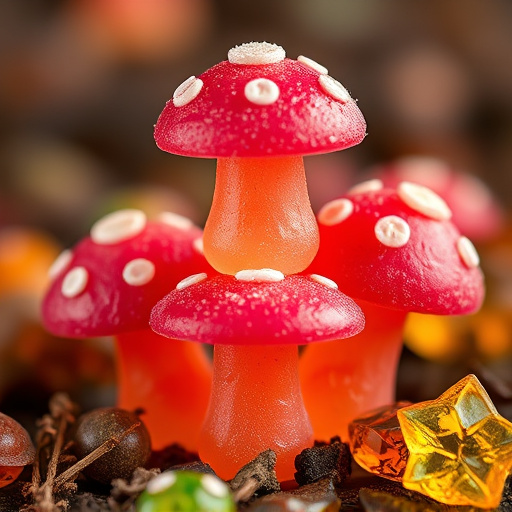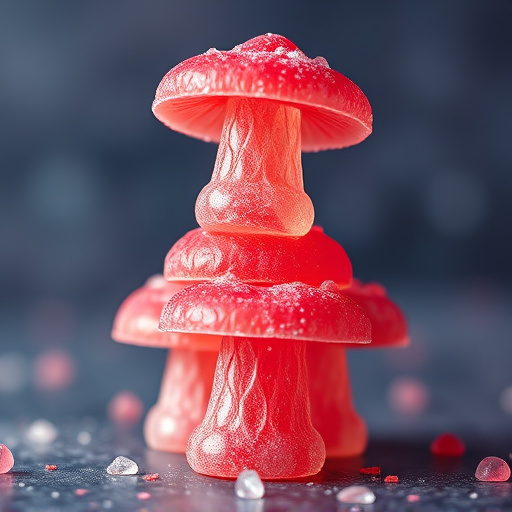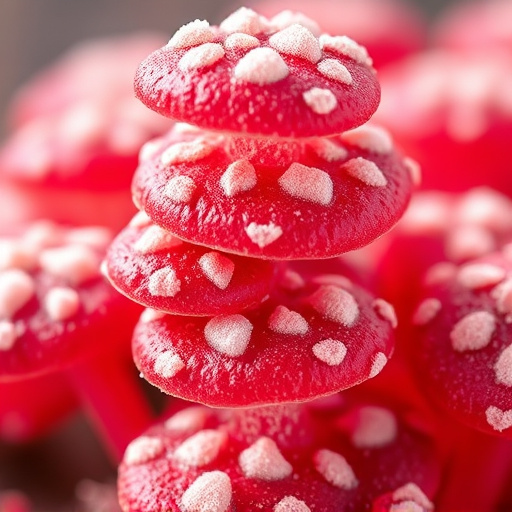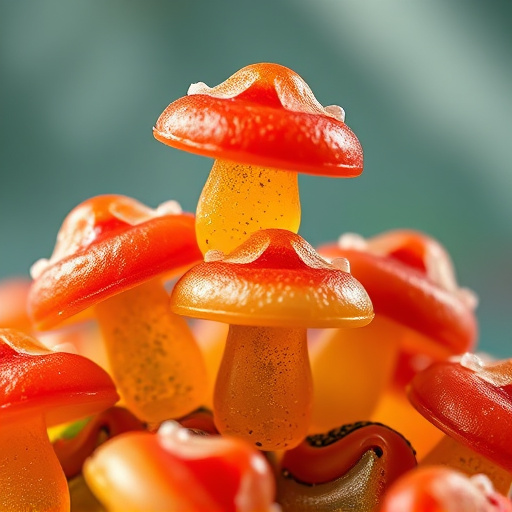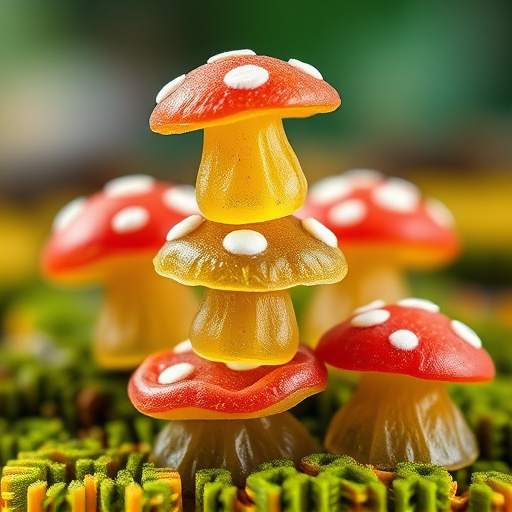The Legal Status of Magic Mushroom Gummies is highly variable globally, with some regions legalizing psilocybin for medical or recreational use while many countries maintain strict prohibitions. Consumers should research local laws and understand potential risks before purchasing or consuming these products to avoid severe consequences and ensure responsible consumption. Key variations include classification as controlled substances versus low-risk substances, decriminalization, and limited sales in permissive jurisdictions like the Netherlands, Spain, Canada, and certain U.S. states.
“Unraveling the world of magic mushroom gummies, a growing trend in the wellness space, requires navigating a complex legal landscape. This article provides an insightful guide through the intricacies of the market, focusing on the Legal Status of Magic Mushroom Gummies. From understanding their composition to exploring the changing legalities across jurisdictions, we delve into how these factors influence access and pricing.
Additionally, we equip readers with strategies to identify safe, high-quality sources for the cheapest deals, ensuring a responsible and informed experience in this emerging market.”
- Understanding Magic Mushroom Gummies and Their Legal Landscape
- – A comprehensive overview of what magic mushroom gummies are.
- – Exploring the legal status of psilocybin products across various jurisdictions.
Understanding Magic Mushroom Gummies and Their Legal Landscape
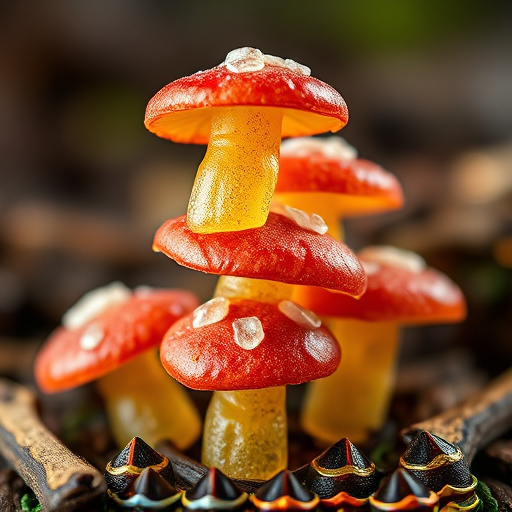
Magic Mushroom gummies are edible cannabis products infused with psilocybin, a compound known for its psychoactive effects. They offer an alternative consumption method to traditional smoking or drinking, providing a discrete and potentially less harsh experience. However, navigating the legal landscape surrounding these products is essential, as their status varies widely across different jurisdictions.
The Legal Status of Magic Mushroom Gummies is complex and evolving. Many countries have strict regulations against cannabis-derived substances, including psilocybin gummies. In contrast, some regions have legalized or decriminalized psilocybin for medical or recreational use, leading to a surge in interest in edible forms like gummies. As such, it’s crucial for consumers to research local laws and understand the potential risks before purchasing or consuming magic mushroom gummies.
– A comprehensive overview of what magic mushroom gummies are.
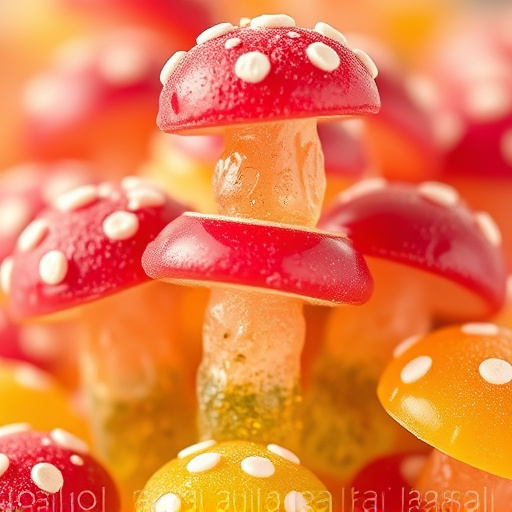
Magic mushroom gummies are edible cannabis products infused with psilocybin, a compound naturally found in certain types of mushrooms. These gummies come in various shapes, sizes, and flavors, making them an appealing choice for those seeking an alternative way to consume psychedelic substances. The legal status of magic mushroom gummies varies significantly worldwide, reflecting the differing stances on psychedelics across countries and regions.
In some jurisdictions, psilocybin-containing edibles like gummies are entirely illegal, classified as controlled substances with strict penalties for possession and distribution. Other places have legalized or decriminalized them for medical or recreational use, recognizing potential therapeutic benefits while implementing regulations to ensure safety and responsible consumption. Understanding the legal landscape is crucial before considering purchasing magic mushroom gummies, as engaging in any psychedelic substance without adhering to local laws can result in severe consequences.
– Exploring the legal status of psilocybin products across various jurisdictions.
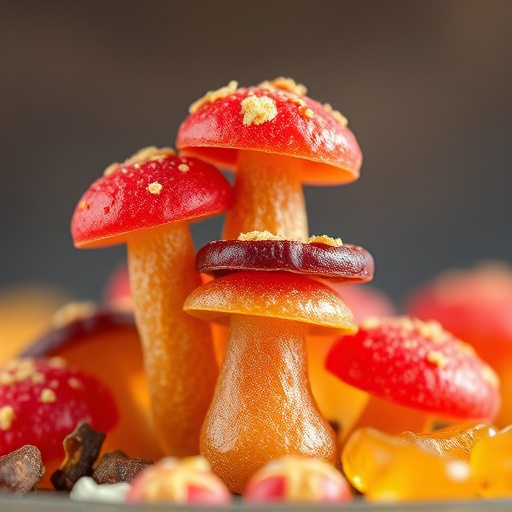
The legal status of psilocybin products, including magic mushroom gummies, varies significantly across different jurisdictions worldwide. In some countries, like the United States, psilocybin remains classified as a Schedule I controlled substance under federal law, implying it has no accepted medical use and a high potential for abuse. This classification makes it challenging to obtain and research, even though some states have decriminalized or legalized psychedelic substances for medicinal purposes.
In contrast, several countries in Europe, such as the Netherlands and Spain, have more liberal policies regarding psilocybin. These regions often view it as a low-risk substance and allow for limited sales and possession for personal use. Other countries, like Canada and certain U.S. states (e.g., California), have taken significant steps towards decriminalization and even full legalization of psilocybin, opening up opportunities for research and therapeutic applications. Understanding the legal landscape is crucial when seeking deals on magic mushroom gummies to ensure compliance with local regulations.
In conclusion, while the legal landscape surrounding the legal status of magic mushroom gummies continues to evolve globally, many regions are gradually recognizing their therapeutic potential. As research advances and public perception shifts, it’s likely we’ll see increased accessibility and more affordable deals for these innovative psilocybin products in the future. Staying informed about local regulations is key when exploring this alternative wellness route.
